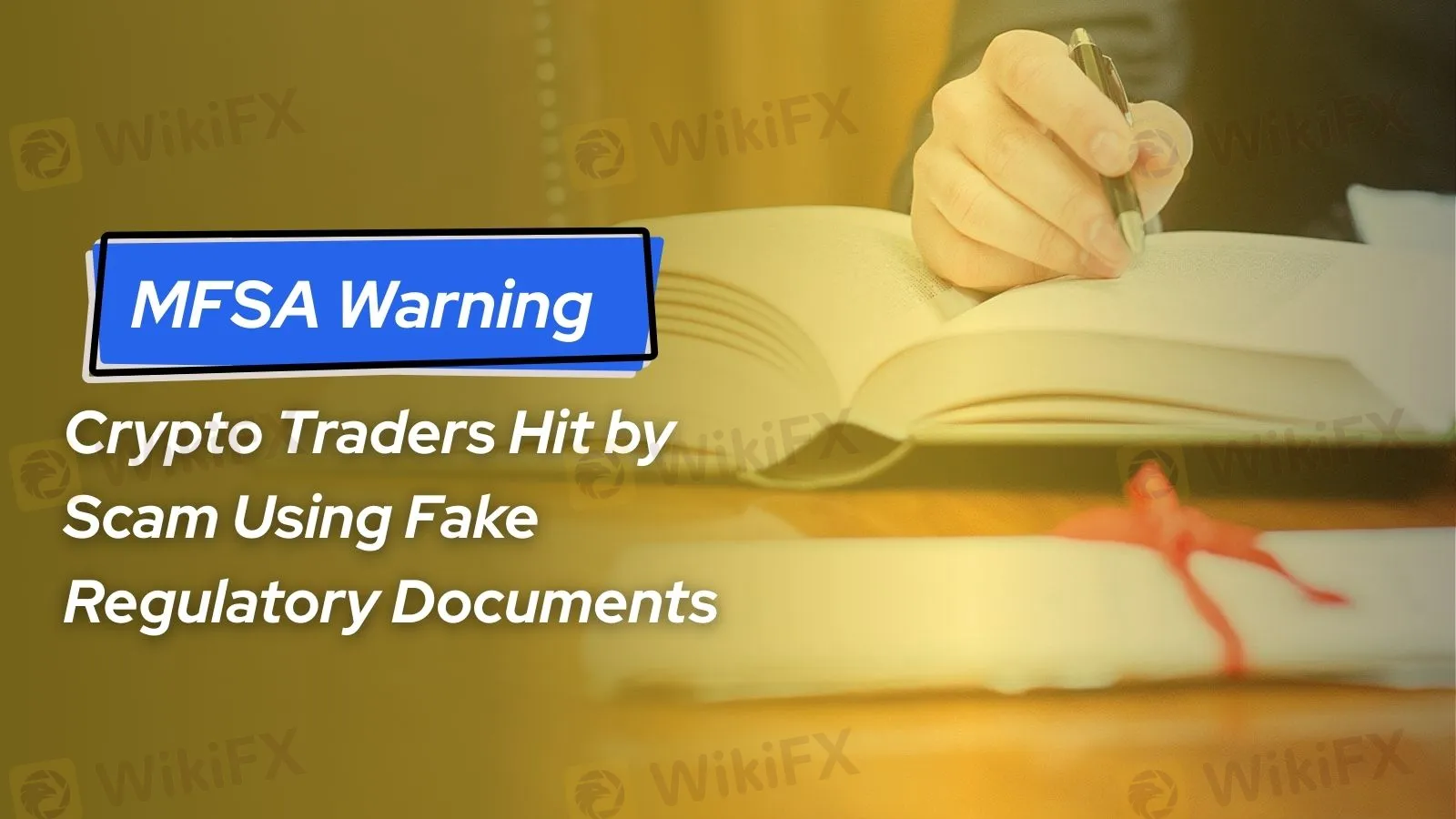简体中文
繁體中文
English
Pусский
日本語
ภาษาไทย
Tiếng Việt
Bahasa Indonesia
Español
हिन्दी
Filippiiniläinen
Français
Deutsch
Português
Türkçe
한국어
العربية
Crypto Traders Hit by Scam Using Fake Regulatory Documents, MFSA Cautions
Abstract:Fraudsters are using MFSA-branded fake documents to scam crypto users, as impersonation of regulators rises globally and document-based scams grow increasingly sophisticated.

Scammers Pose as MFSA Officials to Demand False Fines
A new crypto-related scam has emerged in Malta, targeting digital asset traders with fraudulent documents impersonating the Malta Financial Services Authority (MFSA). The forged letters claim that recipients have committed market manipulation—particularly involving Bitcoin and Ethereum—and must pay regulatory fines.
These fake notices mimic the MFSAs branding, including its logo, formatting, and official signature style. According to the regulator, the documents are entirely false, and the MFSA has issued a public warning urging the public to stay alert. The scam leverages institutional credibility to pressure victims into making payments, often using threats of legal consequences or urgent deadlines to reduce scrutiny.
Other Jurisdictions Report Similar Impersonation Schemes
Maltas warning follows a broader global pattern of scammers using forged government credentials to extract funds from unsuspecting individuals. In the United States, the Commodity Futures Trading Commission (CFTC) previously reported emails falsely accusing crypto users of tax fraud, allegedly sent by its enforcement division. In the UK, the Financial Conduct Authority (FCA) flagged incidents where individuals posed as FCA investigators demanding access to private wallets under the guise of compliance checks.
These impersonation efforts are growing more refined, often using real official names and structures to deceive victims. The tactics show an evolution from typical phishing attempts toward more credible, document-based fraud—making it harder for investors to distinguish scams from legitimate notices.
Investors Urged to Verify and Report Suspicious Communications
In light of the rising threat, the MFSA strongly advises users to verify any correspondence that appears to come from a financial authority. Genuine enforcement actions are not delivered through unofficial emails, nor do they demand immediate payment without proper legal procedure. Individuals are encouraged to cross-check company or enforcement notices using the MFSAs official website or contact lines.
Furthermore, suspicious messages should be reported directly to the MFSAs Financial Crime Compliance Unit. Tools like public regulator databases and verified contact portals remain essential in filtering out fraudulent outreach.
Disclaimer:
The views in this article only represent the author's personal views, and do not constitute investment advice on this platform. This platform does not guarantee the accuracy, completeness and timeliness of the information in the article, and will not be liable for any loss caused by the use of or reliance on the information in the article.
Read more

Think Scams Won’t Happen to You? That’s Exactly What Scammers Count On
We live in a world where information is everywhere. People are more digitally literate than ever before. Financial education is just a few clicks away. And yet, investment scams are not going away but they’re getting worse. It’s tempting to think that only the gullible fall for these tricks. But that’s far from the truth. Why? Because investment scams don’t target your knowledge. They target your emotions.

Hong Kong Warns of CBEX Group Fraud Amid Nigerian Outrage
Hong Kong's 2024 alert revealed CBEX Group's fraudulent activities, misleading investors in Nigeria and beyond. Many face significant financial losses and withdrawal issues.

AMF and ACPR Warn Against 23 Unauthorized Forex and Crypto Platforms
French regulators have flagged 23 new websites for offering unauthorized Forex and crypto-derivative services.These platforms, which lack the necessary licenses, continue to target local investors with aggressive marketing and unrealistic profit promises. Authorities warn that many of these sites use misleading branding and domain names to appear credible.

Phishing Goes Vocal: Binance Warns of Fake Support Phone Scams
Binance introduces SMS-based security codes as scammers shift tactics from links to phone call traps.
WikiFX Broker
Latest News
Think Scams Won’t Happen to You? That’s Exactly What Scammers Count On
Currency Calculator


